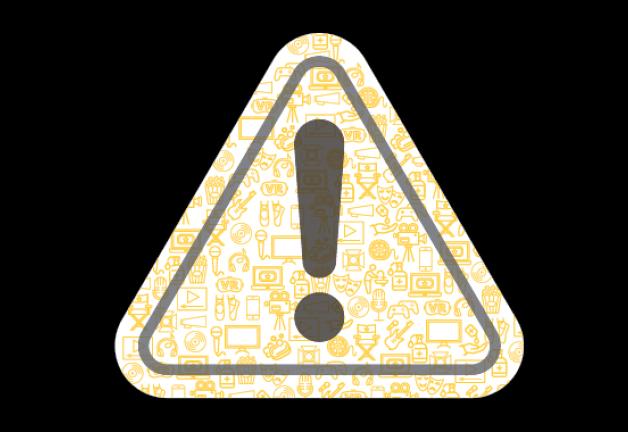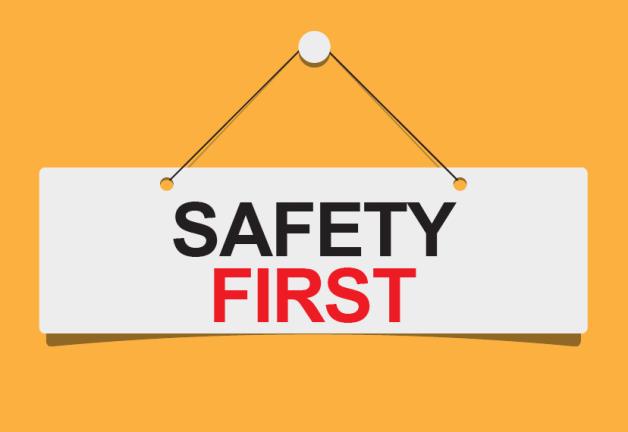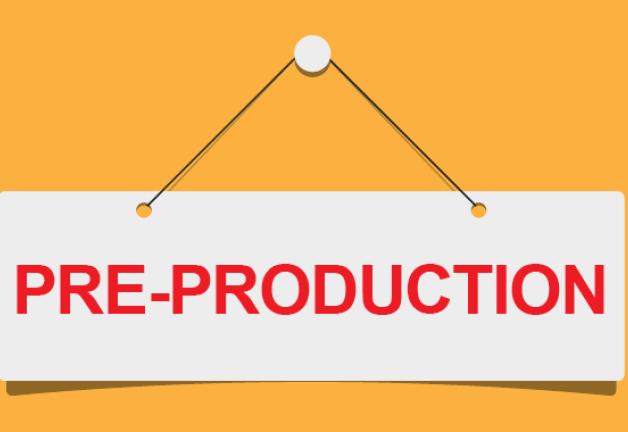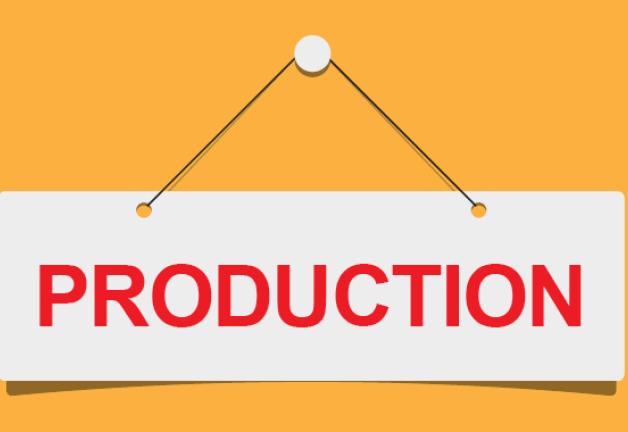SAG-AFTRA, the DGA, IATSE, Teamsters and the Hollywood Basic Crafts Announce COVID-19 Safety Agreement to Expire May 11, 2023.
Agreement Matches May 11 Date Federal Government is Ending its COVID Public Health Emergency
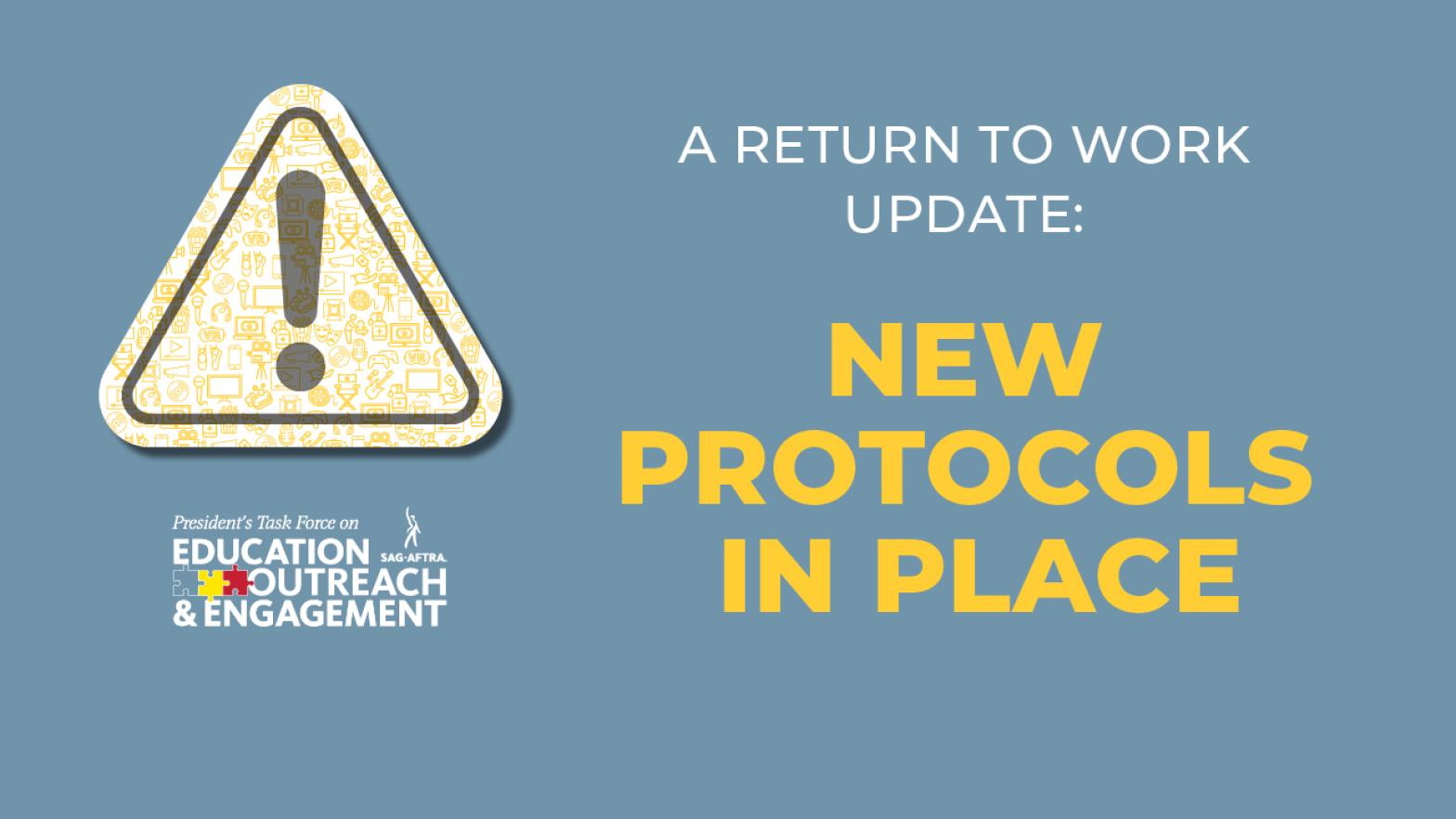
Join us for an important update on the revised COVID-19 safety protocols in the joint SAG-AFTRA, DGA, IATSE and Teamsters/Basic Crafts Return to Work Agreement with the Alliance of Motion Picture and Television Producers.
The new safety protocols, which went into effect on July 19 and will be in place until at least September 30, 2021, makes modifications on workplace practices, taking into account differing levels of risk based on production location employee vaccination status. The revised agreement also includes updates to testing and PPE requirements; rules for producers' mandatory vaccination policies; and revised travel and transportation requirements.
What protocols are in place for my TV/Theatrical production?
Under the revised COVID-19 Return to Work Agreement, production location protocols are determined by data provided at covidactnow.org.
Revised COVID-19 Return to Work Agreement FAQs
As of July 19, 2021
-
The Return to Work Agreement is a set of COVID-19 safety protocols that were developed with DGA, IATSE, SAG-AFTRA and Teamsters/Basic Crafts and negotiated with the AMPTP. The original RTW Agreement was signed in September 2020 and is the outcome of unprecedented coordination and solidarity between the unions and collaboration with Employers to develop science-based protocols that minimize the risk of COVID-19 virus transmission in the industry’s unique work environments.
-
By mutual agreement, Los Angeles is under Part I effective immediately. The applicable protocols for areas outside of Los Angeles will be determined based on the triggers as provided in the agreement. Detailed, daily-updated data for each metropolitan area and/or county can be found at covidactnow.org.
-
The Return to Work Agreement is enforceable through the grievance and arbitration process in the collective bargaining agreement applicable to that production. In addition, the agreement requires producers to designate a COVID-19 Compliance Supervisor who is responsible for COVID-19 safety compliance and enforcement on each production. Any producer that adopts a mandatory vaccination policy must also implement a system by which an employee’s entitlement to work under protocols applicable to vaccinated persons will be clearly and visibly identified.
-
No, the Zone definitions remain the same.
-
- Under Part I (Stricter Protocols): The periodic testing requirements for Zone A remain the same (i.e., 3 times per week if the person works 5 days with at least 1 lab-based PCR test per week) except that for fully vaccinated employees, approved antigen tests and “pool testing” may now be used provided that one test per week remains a non-pool tested lab-based PCR test. (“Pool testing” allows up to eight samples to be combined and tested together using a lab-based PCR test and for all samples to be deemed negative if the test result is negative. If the test result is positive, the samples are all deemed positive until they can be individually re-tested and positive sample(s) identified.)
- Under Part II (Less Strict Protocols): Fully vaccinated Zone A employees must be tested at least once per week using a lab-based PCR test. Unvaccinated employees remain subject to the Part I protocols above.
-
Changes in status between Parts I and II do not remove or otherwise impact a performer’s obligation to continue working. If there are unusual circumstances, however, that place you at elevated risk, please contact the union.
-
- Producers that wish to implement mandatory vaccination policies are encouraged to make and announce that decision as soon as possible, but there is no prohibition on adopting mandatory vaccination policies midway through production. We anticipate that producers who do so will, as a practical matter, need to provide a reasonable opportunity for cast and crew to become vaccinated.
- It is recommended that unvaccinated employees obtain their first vaccine shot (or only vaccine shot if using the Johnson & Johnson vaccine) before July 26 and complete their course of vaccination within 6 weeks thereafter (including fulfilling the two week waiting period after the second shot of Pfizer or Moderna COVID-19 vaccine), in which case the Return to Work Agreement guarantees that the employee will continue to be eligible for employment even if the production adopts a mandatory vaccination policy.
-
- Compensation for time spent testing remains unchanged except that no payment is due to a prospective employee who is hired after undergoing testing but who fails to report to work.
- As a reminder, if you are testing on a day on which you do not work for the production, you are owed $250, with no benefit fund contributions due on that stipend, or, for a background actor, $100 on which benefit fund contributions will be made if your test is negative and you are therefore engaged on the production.
-
We are committed to regularly reviewing the latest data and updating safety protocols to reflect the latest scientific findings. In the case of antigen tests, they have become significantly more accurate since the original Return to Work agreement went into effect and our scientific advisors now endorse the use of antigen tests as long the specific brand of antigen test to be used is reviewed and approved.
-
Employees that are traveled by air continue to be subject to pre-employment and periodic testing requirements. Post-flight tests were previously required when the employee was scheduled to commence work within 48 hours of arrival and did not have a negative result from a pre-flight test administered not more than 48 hours prior to departure. Increased vaccination rates and in-flight masking requirements have sufficiently reduced the risk of acquiring COVID-19 during the flight to render the additional post-flight test applicable in this narrow circumstance unnecessary.
-
- If you are trying to get work on a production that has adopted a mandatory vaccination policy, the producer may only ask you whether you are fully vaccinated or have a disability or sincerely-held religious belief that would prevent you from becoming fully vaccinated. If you are not fully vaccinated, but you do have such a disability or sincerely-held religious belief, you should answer “yes” to that question.
- The producer may not inquire further until they make you an offer of employment. That offer will be contingent, however, on two things: First, you will need to verify your disability or sincerely-held religious belief. Second, you will need to go through the legally required “interactive process” with the producer and reach a determination that your disability or sincerely-held religious belief can be accommodated without imposing an “undue hardship.” Assuming that both of these conditions can be met, you will be considered engaged.
-
No. Producers are required to maintain vaccination status information securely and only give access to those with a need to know. The producer is obligated to adopt a visible identification system, however, that will make it visually apparent that an individual is or is not eligible to work under the terms applicable to vaccinated employees.
-
No. There are multiple provisions in the Return to Work Agreement that the producer cannot comply with unless they know your vaccination status. This is true regardless of whether the producer has implemented a mandatory vaccination policy, although if the producer has not adopted such a policy, they may not inquire about your vaccination status until after you are engaged.
-
All references to self-taped auditions have been removed from the Return to Work Agreement and the requirement of physical distancing for in-person auditions no longer applies when it can be confirmed that everyone involved is fully vaccinated. The requirement of a plexiglass partition when employees are not wearing PPE and the prohibition against more than one individual auditioning at a time have been removed.
-
The fact that a single individual tests positive for COVID-19 will not affect the applicable protocols. If multiple individuals test positive such that it appears there is an outbreak, the union should be contacted immediately and that set will be addressed individually.
-
The Return to Work Agreement does not empower employees to refuse to work with unvaccinated individuals. Any such condition would need to be separately bargained for as an overscale term.
-
No. Producers are required to maintain vaccination status information securely and only give access to those with a need to know. The producer is obligated to adopt a visible identification system, however, that will make it visually apparent that an individual is or is not eligible to work under the terms applicable to vaccinated employees.
-
Producers will require individuals to provide one of the following types of proof of vaccination: (1) A digital vaccination card maintained by a government, vaccination provider or verification service that checks against government records or (2) Production or upload of a physical vaccination card or copy of a physical vaccination card. Producers must maintain any documentation of vaccination status securely and available only to those with a need to know.
-
The Return to Work Agreement jointly negotiated by the unions and employers specifically identifies Johnson & Johnson, Moderna and Pfizer as acceptable for the purposes of being "vaccinated" in Part I and Part II of the protocols. This is based on the guidance of the joint unions' medical experts and in light of the fact that Oxford-AstraZeneca, like a number of other vaccines, has not been granted emergency use authorization or approval by the U.S. FDA. For those who may have received the Oxford-AstraZeneca vaccine outside of the U.S., employers have two options under the Return to Work Agreement: 1) a person vaccinated with Oxford-AstraZeneca can be treated as eligible to work under a mandatory vaccination policy, but must be treated as unvaccinated under either the Part I or Part II protocols for all other purposes (such as testing frequency, meals, PPE, etc.) and/or (2) a person vaccinated with Oxford-AstraZeneca may be treated as fully vaccinated for all purposes after two weeks have elapsed from them receiving a third shot with either the Pfizer or Moderna vaccine (but not Johnson & Johnson).
Mandatory Vaccine Policy FAQs
Pre-Production FAQs
-
- Performers should not sign any waiver of liability or assumption of risk related to COVID-19. When the union becomes aware of these, we notify production that they cannot require these types of documents as a condition of employment without first bargaining such form with the union. It is the union’s position that unless negotiated with us, these forms are ineffective anyway. We have had this discussion with many productions resulting in elimination or substantial modification of such documents.
- If you are aware of any projects that are requiring these forms of performers, please let us know right away.
- The Return to Work Agreement applies to dramatic entertainment programs — theatrical/television/new media.
-
- The Return to Work protocols require that physical distancing be observed for in-person casting unless it can be confirmed that everyone involved is vaccinated. The preference for self-taped auditions has been removed from the Return to Work Agreement. The requirement of a plexiglass partition when employees are not wearing PPE and the prohibition against more than one individual auditioning at a time have also been removed.
-
- Not necessarily. The performer would only be obligated to the producer on days between testing and commencement of services if the producer puts the performer on contract and begins paying for a hold/quarantine day(s). However, the possibility of infection between the time of testing and the shoot day is part of the reason why repeat testing is required.
- Our experts have advised that the virus generally becomes contagious within 72 hours after infection. This timeline is what guides the repeat testing protocols.
- The Return to Work Agreement applies to dramatic entertainment programs — theatrical/television/new media.
-
- A producer may condition an offer of employment on the individual undergoing pre-employment testing and returning a negative result. This means that if you test positive during the pre-employment testing phase, the producer does not have to engage you. If you test positive after being engaged, you may be entitled to sick leave pay.
- The Return to Work (RTW) agreement states that the producer shall follow CDC guidelines in effect at the time or the guidelines of the local governmental authority in effect at the time, whichever is stricter, with respect to the treatment of other employees (e.g. testing, quarantine, or self-isolation) who have been exposed to the employee who tested positive. The employee(s) who was (were) exposed to the employee who tested positive shall also comply with those guidelines.
- If the performer has been engaged, then tests positive or shows symptoms on a temperature check or health screening, and is then sent home, the performer is subject to sick leave pay for the day per the sick leave provisions of the CBA or any applicable statute, if any, and once exhausted, pursuant to the sick leave provisions of the RTW.
- This does not apply to series contract performers, performers employed under Schedule F and stunt coordinators employed under Schedule K-III.
- The Return to Work Agreement applies to dramatic entertainment programs — theatrical/television/new media.
-
- If a performer or background actor, other than a series regular or Schedule F performer, undergoes testing for COVID-19 on a day on which they are not otherwise paid for the day, they are entitled to a stipend as follows, except that no payment is due to a prospective employee who is hired after undergoing testing but who fails to report to work:
- - $250 stipend per day for a principal performer who travels outside his or her home to undergo a test in which the performer does not work for producer. (This does not apply to series regulars or Schedule F performers.)
- - $100 per day for a background actor who travels outside his or her home to undergo a test on a day in which the performer does not work for producer (plus pension & health if the background is actor is ultimately employed by the producer following the test).
- - $20 per day for a performer or background actor self-administering a test at home on a day in which the performer does not work for the producer. (This does not apply to series regulars or Schedule F performers.)
- The stipends include payment for time spent completing COVID-19 training of up to an hour (which need not occur on the same day as the test), plus time spent completing paperwork.
- If the performer works on the same day as the COVID-19 testing, time spent in testing shall be part of the continuous work day. This means, if you report for testing prior to your call time, your clock for the day will start with the testing. No stipend is due if the employee is otherwise paid for the day (eg. payment of a travel allowance to a performer or payment for a hold day).
- Please note that on a day where a performer or background actor is both COVID-19 tested and fitted on the same day, the union's position is that producer must pay for both the testing stipend and any applicable payment for time spent in fitting as the fitting fees do not constitute payment for the day. Performers are advised to contact the union if they have not been paid correctly. We will be filing claims on their behalf.
- A performer required to self-administer a temperature check or fill out a health assessment survey prior to reporting to work on a day in which such performer also does work for producer shall be paid an additional one-tenth (1/10) of an hour. No additional stipend is required in connection with these health assessments provided they are as described in the Return to Work Agreement.
- The Return to Work Agreement applies to dramatic entertainment programs — theatrical/television/new media.
-
- The producer is obligated to cover the cost of testing. As such, the union cannot dictate the location of testing. We are hopeful that the production companies will work with performers with respect to scheduling testing subject to the performer’s professional availability. However, there are requirements that may make this difficult, including the timeframes for testing found in the Return to Work Agreement. (See section 2.A. starting on page 4 of the RTW Agreement)
- The Return to Work Agreement applies to dramatic entertainment programs — theatrical/television/new media.
-
- The existing travel rules of the contract remain in place for travel days. If travel and pre-production quarantine is required by the producer, the union’s current position is that the performer should be compensated for it. For productions subject to the Return to Work Agreement, the payment for time spent in quarantine shall be no less than:
- - For principal performers under certain money breaks, no less than the minimum weekly scale rate required by the applicable collective bargaining agreement (e.g., the Schedule B minimum for productions subject to the Codified Basic Agreement or TV Agreement). Each payment of one week consitutes payment for 7 days of quarantine. Pro-ration may be done on the basis of 1/5 of the weekly rate. (This does not apply to series regulars engaged at $20k or more per episde, TV Schedule F performers engaged at $40k or more per picture, nor Theatrical Schedule F performers engaged at $80k or more per picture.)
- - **For background actors, no less than the scale rate per day for the first 5 out of every 7 days.
- If you are required to quarantine during the production period (also known as sequester or bubble), please contact the union for additional details related to payment.
- The Return to Work Agreement applies to dramatic entertainment programs — theatrical/television/new media.
-
- If you must travel by plane or other inter-city transport, you should take all precautions of social distancing and sanitization—for example, wear a mask at all times while in public and maintain six feet separation with other travelers whenever possible.
- Employees traveling by air within the US and Canada need only take a pre-flight test if required by the airline or a government authority. For travel outside the US and Canada, a pre-flight COVID-19 test must be administered not more than 72-hours prior to departure and the result obtained before departure. Post-flight testing requirements have been removed. Employees traveling by air shall be deemed engaged not later than the date of travel.
- The Return to Work Agreement applies to dramatic entertainment programs — theatrical/television/new media.
Production FAQs
-
- The RTW Agreement provides that there will be at least four Zones: Zone A, Zone B, Zone C and Zone D. Some productions may choose to have additional zones with heightened safety protocols.
- Zone A is any perimeter within which activity occurs without physical distancing or the use of PPE and includes all principal performers and background actors. This is the Zone with the most *potential* for transmission because some activity will take place in which PPE is removed. The number of people in Zone A will be severely limited.
- If you are cleared for Zone A, you will likely be tested three times a week at a minimum, unless you are fully vaccinated and working under the Part II (Less Strict) protocols, in which case you should expect to test only once per week. When circumstances require—such as extensive intimate scenes or scenes involving extreme physical exertion—testing may be daily.
- Zone B consists of those employees who work on a “hot” set, but who are not present in a workspace with a performer or background actor while the performer or background actor is not wearing PPE. Use of PPE and stringent physical distancing practices are observed and enforced within Zone B.
- Individuals in Zone B will be tested at least once per week, unless they are fully vaccinated and working under the Part II (Less Strict) protocols, in which they will be tested once every other week.
- Zone C consists of employees who can wear PPE at all times, only work with other employees wearing PPE, are not required to be within six feet of anyone for more than 15 minutes and do not come into contact with Zone A or B employees.
- Individuals in Zone C will be tested at least once every two weeks unless they are fully vaccinated and working under the Part II (Less Strict) protocols, in which they will not be subject to periodic testing.
- Zone D is everyone else, including the outside world cast and crew go to when not working—their homes, hotels, or other public places. Everything we do in Zone D has the potential to effect Zone A and B. So, while everyone gets tested prior to entering Zone A or B for the first time and, then, on a regular basis, the production set has a higher chance of remaining a safe place if cast and crew remain vigilant and practice social distancing and high-level sanitization while in the off-set Zone D.
- Individuals in Zone D do not require periodic testing.
- The Zone system will force everyone to ask a fundamental question: what Zone do I absolutely need to be in to do my job and why am I standing in a specific area if I am not needed there? Any protocol, security zone or checkpoint can only work seamlessly if every individual does a self-check and adheres to each guidelines.
- Please note that some productions may use other names for the zones, such as a color system, but the system should still follow the parameters set forth above.
- Each day, cast and crew arrive at a medical checkpoint. Each person’s temperature is taken.
- No one will be allowed access to Zone A or Zone B for the first time unless they have been tested and cleared in accordance with the Zone A testing protocol—people may carry the virus and show no symptoms so it’s crucial to aggressively test from the outset to isolate any carriers of the virus.
- Regular testing will vary from daily to three times-a-week to weekly, depending on where your role requires you to be. For example, what if you are cleared to Zone B—and you are being tested weekly—but need access to Zone A? You cannot enter Zone A until you are tested and cleared in accordance with the Zone A testing protocol.
- The Return to Work Agreement applies to dramatic entertainment programs — theatrical/television/new media.
-
- Yes, the Agreement takes into account whether the employee is fully vaccinated and whether the production location is in a higher risk metropolitan area/county (and the Part I (Stricter Protocols) therefore apply) or a lower risk metropolitan area/county (and the Part II (Less Strict Protocols) therefore apply). Testing protocols may be adjusted by mutual agreement of the producer and the unions if circumstances warrant, for example, in areas of low prevalence of COVID-19.
- The Return to Work Agreement applies to dramatic entertainment programs — theatrical/television/new media.
-
- The production must provide face masks, and in some cases face shields, to be made available at the set’s medical checkpoint at the start of each day.
- The Return to Work Agreement applies to dramatic entertainment programs — theatrical/television/new media.
-
- If possible, drive yourself and park in the Crew Lot, which be secured from the public, attendants or owners of the lot. Whenever possible, avoid public transportation which creates the possibility of being infected.
- If you park in a production lot (CREW), you are immediately entering into an area considered Zone B which will have a medical checkpoint.
- Once you take company transportation—either from the production lot or from any other location (such as a hotel, or, if you are picked up from home) you are considered to be in Zone B and you must observe social distancing.
- The Return to Work Agreement applies to dramatic entertainment programs — theatrical/television/new media.
-
- Your work day starts at the time you are directed to report; however, all time spent in self-administering a temperature check or filling out a health assessment survey, provided that it is limited to the activities as described in the Return to Work Agreement, shall be paid as 1/10 of an hour.
- The Return to Work Agreement applies to dramatic entertainment programs — theatrical/television/new media.
-
- There will be a health safety meeting. At the meeting, the 1st Assistant Director and COVID-19 Compliance Supervisor (also known as the Health Safety Supervisor or COVID Compliance Officer) will brief cast and crew, emphasizing the protocols and making sure each individual completes a declaration about any symptoms they might be experiencing and/or any possible exposure to symptoms consistent with COVID-19.
- SAG-AFTRA expects all performers and crew to abide by the safety protocols and should hold each other accountable. Please contact the union if there are any concerns or if you otherwise need assistance.
- The Return to Work Agreement applies to dramatic entertainment programs — theatrical/television/new media.
-
- As an employer, it is the producer’s responsibility to maintain a safe working environment. However, SAG-AFTRA is working closely with signatory employers to ensure compliance with appropriate protocols if necessary. The Return to Work Agreement provides the specific safety protocol parameters needed.
- There is a Health Safety Team, led by a COVID-19 Compliance Supervisor (also known as the Health Safety Supervisor or COVID Compliance Officer). Their broad assignments include:
- • Make sure all the testing procedures are followed rigorously;
- • Make sure the set is fully stocked with PPE, all areas are sanitized and safe (including assessing ventilation, air filtration and circulation, and the disinfecting of surfaces, property, equipment and tools);
- • Make sure hand washing, sanitizing and disinfecting stations are set up and fully functional, as well as ensure hand sanitizer is broadly available—all of which will be carried out by a dedicated Hygiene Crew; and
- • Make sure all checkpoints are in force;
- The COVID-19 Compliance Supervisor is the final authority on any COVID-19 matters and has the power to halt production in the case of a breach in procedures or testing results that raise concerns about virus infections or spread. Employees should immediately report any concerns directly to the COVID-19 Compliance Supervisor.
- The Return to Work Agreement applies to dramatic entertainment programs — theatrical/television/new media.
-
- You will notice much less foot traffic around a set—production crew, especially the 1st AD, will set up scenes and do in-between adjustments—such as moving walls or furniture—by staggering on-set presence of department personnel to minimize the number of people and, thus, maintain social distancing.
- The Return to Work Agreement applies to dramatic entertainment programs — theatrical/television/new media.
-
- This is a complicated question as it would depend upon the facts. Depending on the type of performer and the person that tested positive, the production may or may not shut down. This also depends upon whether the CDC and/or other regulatory scheme can require the production shut down.
- You should contact the union in the event that your production shuts down due to a COVID-19-related incident. Your rights will depend on a variety of factors including your form of engagement (e.g., daily, weekly, series regular), how much you are compensated and the reason for the shutdown (e.g., whether it was ordered by a governmental authority). Performers who are required to quarantine/isolate due to a COVID-related shutdown, their own positive test result or their own possible exposure may be entitled to sick pay and should consult with the union if sick pay is not provided. With respect to anyone that was not potentially exposed, the employer has the right to request a waiver of consecutive employment from SAG-AFTRA or the right to renegotiate your agreement. In some cases therefore, a performer may not be entitled to additional payment as a result of the COVID-19 related shutdown.
- In some cases, you may also be entitled to additional compensation under certain government regulations in certain jurisdictions.
- Producer need not pay an unvaccinated employee for legally required quarantine beyond any minimum set by law and need not make benefit contributions on any required compensation if that employee would not have had to quarantine pursuant to the law of the applicable jurisdiction if they were fully vaccinated.
- Please contact SAG-AFTRA for more information.
- The Return to Work Agreement applies to dramatic entertainment programs — theatrical/television/new media.
-
- You will be directed to immediately self-quarantine—while, at the same time, a second test will be run to confirm the diagnosis of the first positive result. If the tests contradict each other, a third test will be performed. These procedures may be modified to comply with government or health authority requirements.
- The Return to Work Agreement applies to dramatic entertainment programs — theatrical/television/new media.
-
- The Return to Work Agreement does not authorize French Hours and Meal Period Violations continue to apply for failure to break for meals as required by our contracts. Prohibition of buffet-style meal service and physical distancing requirements applicable to meal service will now apply only to unvaccinated employees.
- The Return to Work Agreement applies to dramatic entertainment programs — theatrical/television/new media.
-
- If possible, rehearsals will be done in a manner to allow performers to wear PPE and practice physical distancing when they are required to do so under the terms of the Return to Work Agreement. Additionally, if possible, a rehearsal will take place after that day's regular schedule the night before the scenes are to be filmed, in order to run through scenes with the fewest people on set as possible.
- The Return to Work Agreement applies to dramatic entertainment programs — theatrical/television/new media.
-
- Medical records are confidential and the production should be treating them as such. Producer must maintain any documentation of vaccination status securely and available only to those with a need to know. Temperature check results should not be publicly announced. If this is not true on any set, please let the union know right away so that we can address it with the producer.
- The Return to Work Agreement applies to dramatic entertainment programs — theatrical/television/new media.
-
- Under Part I (Stricter Protocols), hair and make-up personnel are required to wear appropriate PPE, practice hand hygiene, and minimize time of contact when they are in close proximity to a performer who cannot physically distance (i.e., because they are having their hair done or make-up applied). This is true regardless of whether the performer and hair and make-up personnel are vaccinated.
- Under Part II (Less Strict Protocols), make-up and hair personnel must wear masks when in close proximity to a performer who cannot wear PPE regardless of vaccinated status unless the performer agrees otherwise.
- The Return to Work Agreement applies to dramatic entertainment programs — theatrical/television/new media.
-
- It is the producer’s responsibility to provide a safe work environment; however, this does not prohibit a producer from seeking the stunt coordinator’s input in creating the protocols for a production.
- Production is required to provide SAG-AFTRA with written protocols that comply with “The Safe Way Forward.” These protocols are specific to the production – especially as it relates to the types of scenes, locations, hazardous conditions and mitigation stunt performers are likely to encounter.
- The Return to Work Agreement applies to dramatic entertainment programs — theatrical/television/new media.
-
- All equipment related to stunts (e.g. vests, mats, pads) have specific methodologies for cleaning between every use by a different performer and at the end of the day for overnight storage. The cleaning procedures must be according to the manufacturer’s specifications and any additional measures required by production safety for the protections of performers.
- The producer is responsible for providing a safe set, including cleaning of equipment; however, it may vary set to set as to who actually does the cleaning. If your equipment is damaged as a result of the producer cleaning it, the union would take the position that the producer should pay for repair or replacement.
- The Return to Work Agreement applies to dramatic entertainment programs — theatrical/television/new media.
-
- Although voiceover work does not occur on a film set, the same principles apply in a studio:
- • Widespread use of personal protection equipment. When any member is doing studio work, masks must be made available.
- • Strict physical distancing will be a constant, largely accomplished by reducing the overall number of people working in the audio house or studio and strictly controlling who enters the VO booth. This change tracks with the best advice we are given in our daily lives to “bend the curve” of the pandemic and keep a distance from people as much as possible.
- • Constant sanitation and cleaning of every nook and cranny, every device, and every tool—before, during and after work.
- • Appropriate ventilation and/or air filtration to assure that air in enclosed spaces and booths does not become a source of infection.
- • A dedicated safety team whose sole task is to ensure the protocols are implemented and adhered to at every moment by production executives.
- The Return to Work Agreement applies to dramatic entertainment programs — theatrical/television/new media.
-
- In some cases, payments connected to time spent in quarantine and sick leave may be commissionable. Generally, stipends for COVID-19 testing are not commissionable. Contact the SAG-AFTRA Professional Representatives Department for more details.
- The Return to Work Agreement applies to dramatic entertainment programs — theatrical/television/new media.
-
- The Return To Work Agreement or "RTW Agreement" is the COVID-19 Return to Work Agreement with DGA, IATSE, SAG-AFTRA and Teamsters/Basic Crafts and the AMPTP. This agreement generally applies to scripted, dramatic entertainment programs produced under the SAG-AFTRA Codified Basic Agreement, SAG-AFTRA Television Agreement, SAG-AFTRA Television Animation Agreement and SAG-AFTRA Basic Cable Animation Agreement, and may apply in other circumstances on a case by case basis.
- Please visit sagaftra.org/files/sa_documents/RTWAgreement.pdf to review the document in full.
- The Return to Work Agreement applies to dramatic entertainment programs — theatrical/television/new media.
Resources & Downloads
Not seeing below? Please log in.


